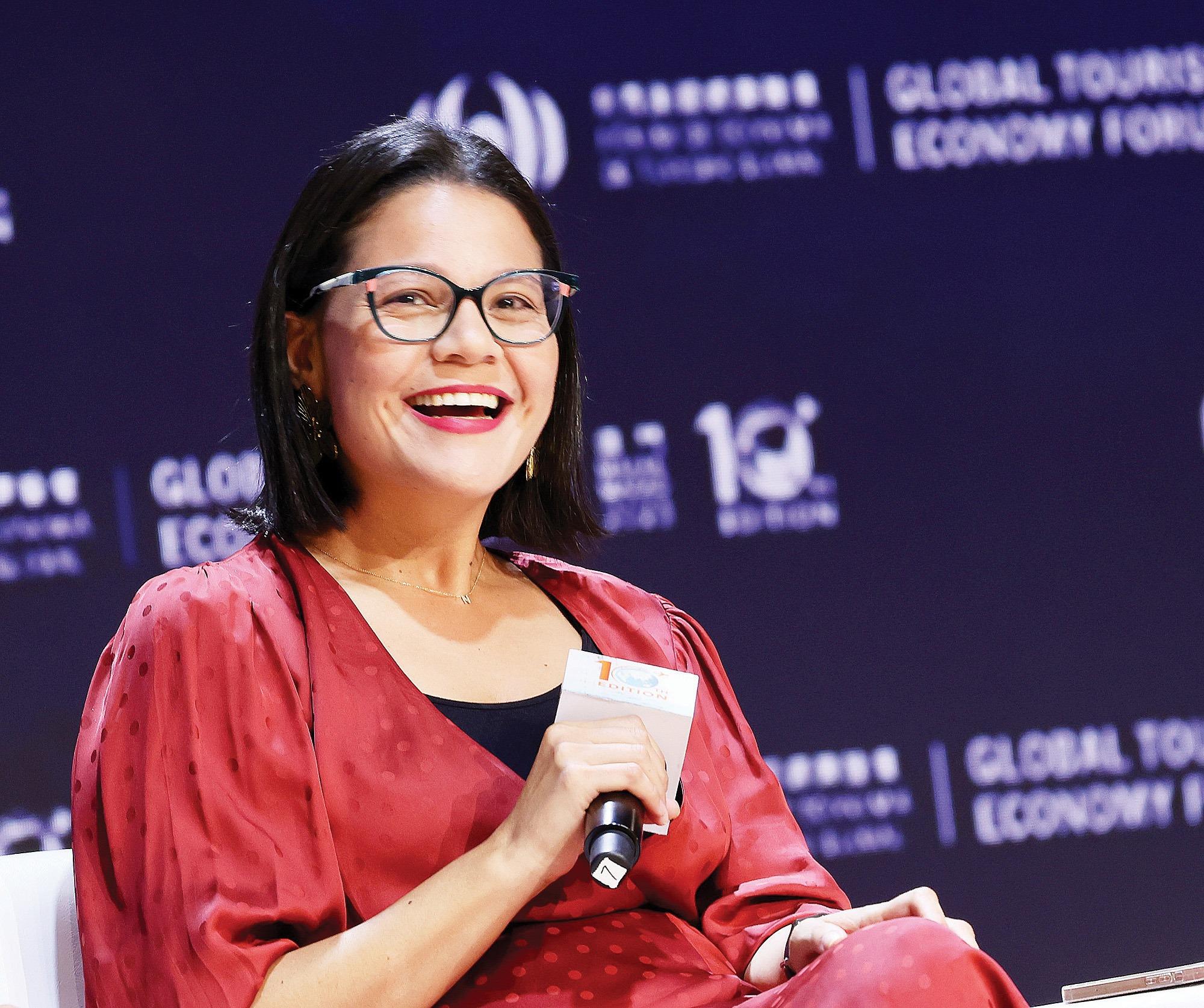 Natalia Bayona, executive director of the World Tourism Organization, delivers speech during the Global Tourism Economy Forum in Macao on Sept 21, 2023. (EDMOND TANG / CHINA DAILY)
Natalia Bayona, executive director of the World Tourism Organization, delivers speech during the Global Tourism Economy Forum in Macao on Sept 21, 2023. (EDMOND TANG / CHINA DAILY)
For the United Nations World Tourism Organization (UNWTO), education is key, and perhaps the top priority in tourism development. Natalia Bayona, the organization’s executive director, made the remarks in an interview with China Daily on Thursday.
Bayona said 50 percent of young people working in tourism have only secondary school education, and 50 percent want to become an entrepreneur or run their own startup.
Therefore, education is a key driver if people want an innovative, sustainable, modern, efficient and value-added tourism sector, she said.
“That’s why, through investments as well as investing in people, we feel that it (education) is key in order to ensure that the public and the private sectors will come together to create a strong workforce,” she said.
By 2030, almost 1 million jobs will be needed in vocational tourism, Bayona said. “So we need to ensure that the next generations have both a quality and affordable education, and then the planet can have the sustainability and prosperity,” she said.
Education will not only help create value-added jobs, but also empower young people through technology and innovation so that tourism can really become an example of how the most human economic sector is evolving, she added.
For Bayona, tourism is a very resilient sector as its strong recovery in the post-pandemic area has been a surprise. Tourism data show that levels already are at 80 percent of pre-pandemic levels, she said.
Many countries, such as Spain and the Dominican Republic, have already rebounded to their respective pre-pandemic levels.
After the pandemic, people want to travel and experience new things — not just in the big cities, but also in rural areas, new destinations, and of course, new ways of traveling, Bayona said.
However, UNWTO cares not only about the number of tourists, but also about the impact of tourism, she said.
“More than ever, we need to measure the impact of tourism in terms of new jobs, the investment, the social impact, and of course, the impact in terms of the climate and the CO2 emissions,
“When we are talking about sustainability, it is not limited to climate change. Sustainability to us is the power to work in tourism, thinking about future generations,” she said.
The UNWTO is working for a more responsible tourism sector. “Basically, we will not only recover, but also lead by example in the way we do things in sustainable ways,” Bayona added.


